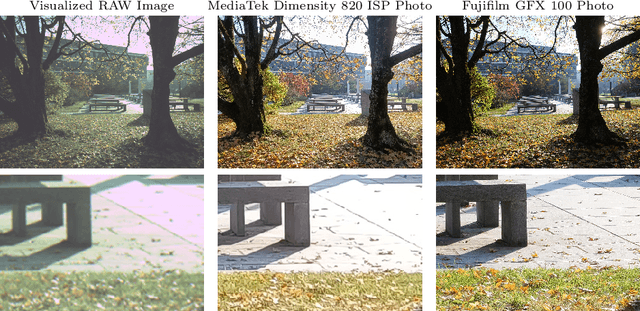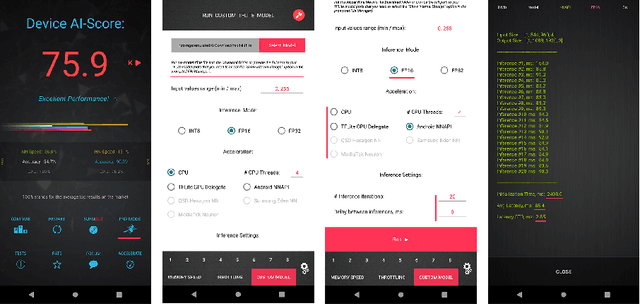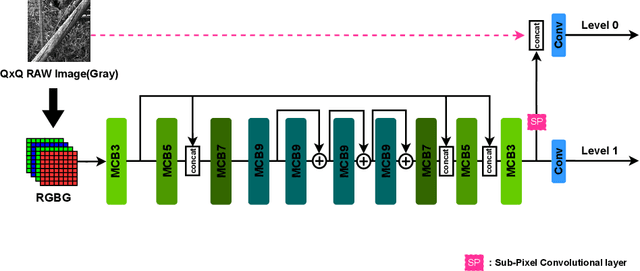Minhyeok Cho
Learned Smartphone ISP on Mobile GPUs with Deep Learning, Mobile AI & AIM 2022 Challenge: Report
Nov 07, 2022



Abstract:The role of mobile cameras increased dramatically over the past few years, leading to more and more research in automatic image quality enhancement and RAW photo processing. In this Mobile AI challenge, the target was to develop an efficient end-to-end AI-based image signal processing (ISP) pipeline replacing the standard mobile ISPs that can run on modern smartphone GPUs using TensorFlow Lite. The participants were provided with a large-scale Fujifilm UltraISP dataset consisting of thousands of paired photos captured with a normal mobile camera sensor and a professional 102MP medium-format FujiFilm GFX100 camera. The runtime of the resulting models was evaluated on the Snapdragon's 8 Gen 1 GPU that provides excellent acceleration results for the majority of common deep learning ops. The proposed solutions are compatible with all recent mobile GPUs, being able to process Full HD photos in less than 20-50 milliseconds while achieving high fidelity results. A detailed description of all models developed in this challenge is provided in this paper.
PyNET-QxQ: A Distilled PyNET for QxQ Bayer Pattern Demosaicing in CMOS Image Sensor
Mar 08, 2022



Abstract:The deep learning-based ISP models for mobile cameras produce high-quality images comparable to the professional DSLR camera. However, many of them are computationally expensive, which may not be appropriate for mobile environments. Also, the recent mobile cameras adopt non-Bayer CFAs (e.g., Quad Bayer, Nona Bayer, and QxQ Bayer) to improve image quality; however, most deep learning-based ISP models mainly focus on standard Bayer CFA. In this work, we propose PyNET-QxQ based on PyNET, a light-weighted ISP explicitly designed for the QxQ CFA pattern. The number of parameters of PyNET-QxQ is less than 2.5% of PyNET. We also introduce a novel knowledge distillation technique, progressive distillation, to train the compressed network effectively. Finally, experiments with QxQ images (obtained by an actual QxQ camera sensor, under development) demonstrate the outstanding performance of PyNET-QxQ despite significant parameter reductions.
 Add to Chrome
Add to Chrome Add to Firefox
Add to Firefox Add to Edge
Add to Edge